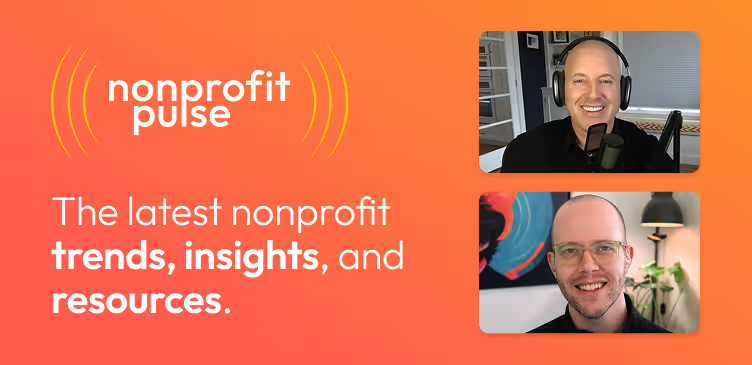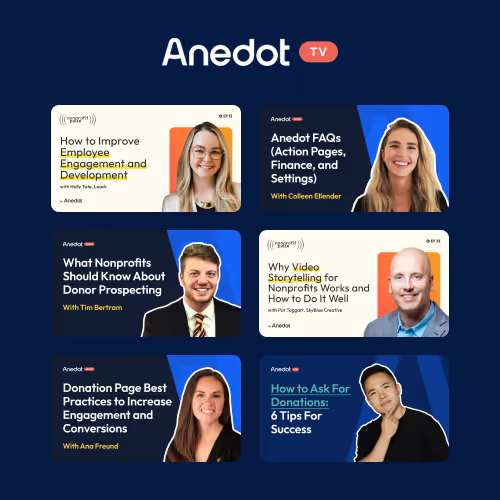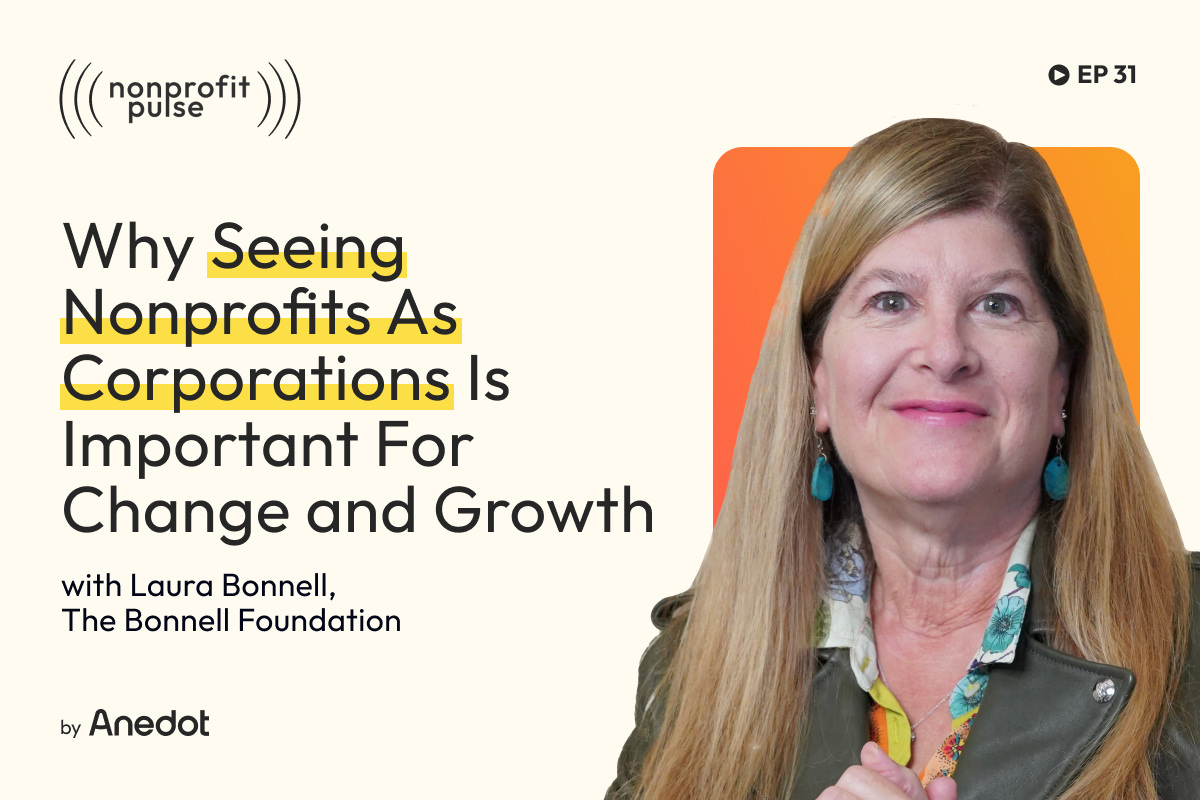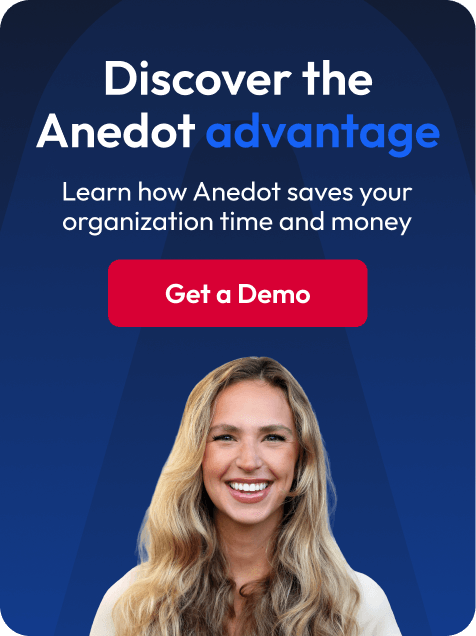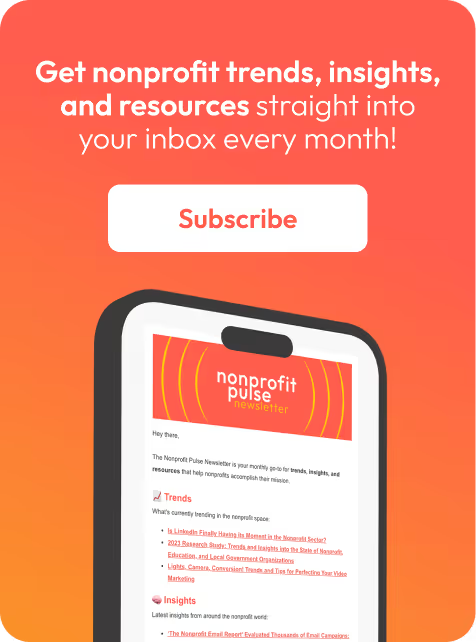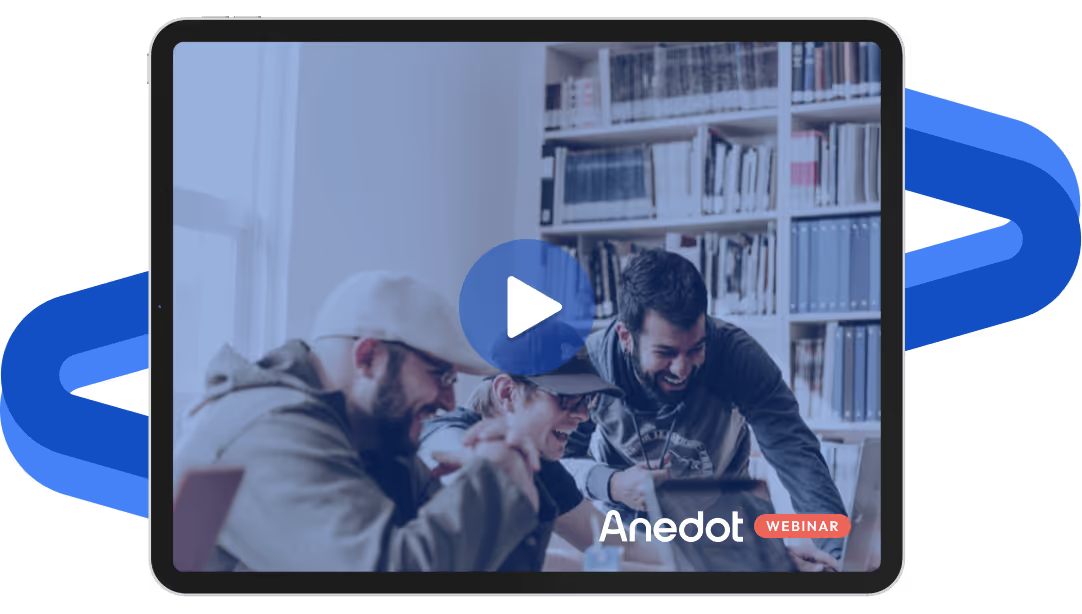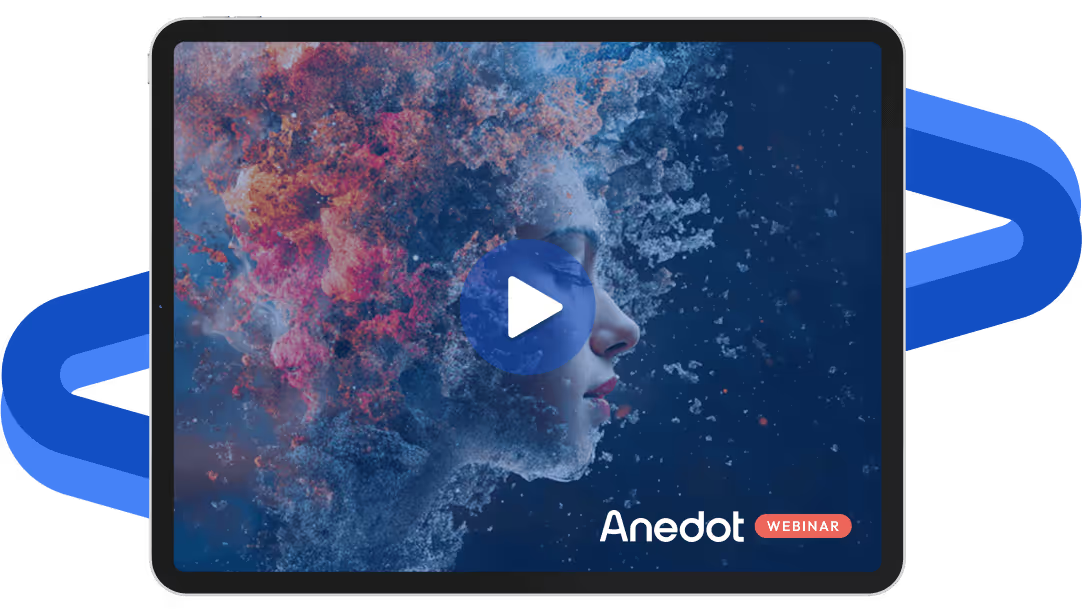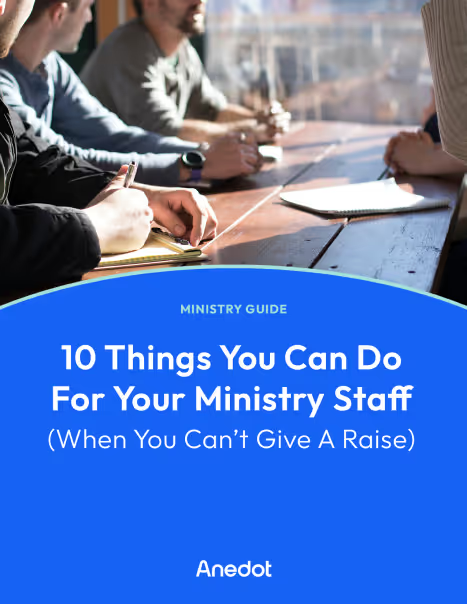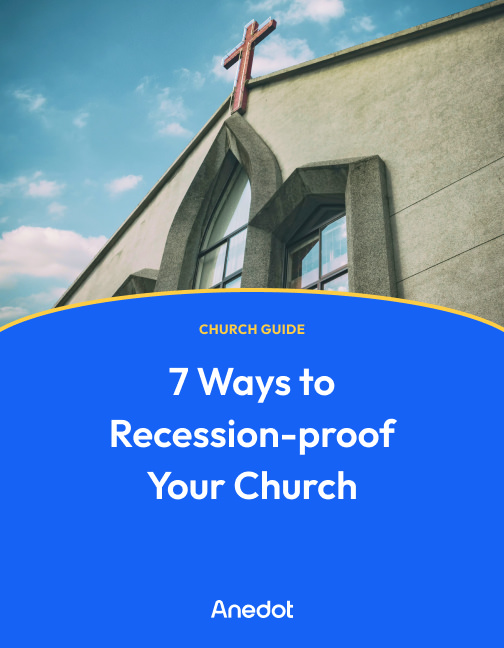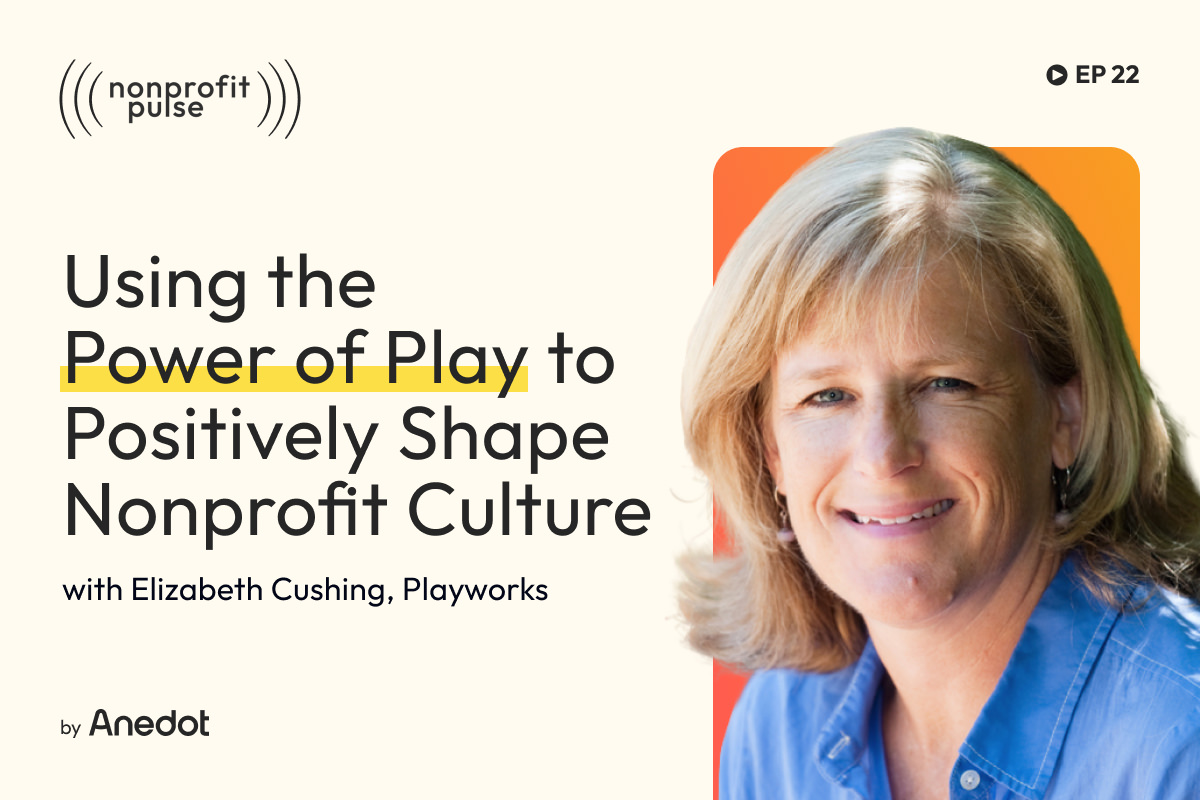Podcast episode transcript ↓
Josh:
In today's nonprofit landscape, success goes beyond merely passion.
It requires strategic planning, solid financial management, and a mindset that treats the organization like a thriving business.
Nonprofits need to view themselves as more than just mission-driven. They must adopt corporate best practices to grow, sustain, and scale their impact.
But how can nonprofit leaders shift their thinking and embrace corporate strategies?
What key business principles can nonprofits apply to increase their financial health and expand their reach?
I’m Josh with Anedot, and welcome to Nonprofit Pulse where we explore trends, insights, and resources that help nonprofits accomplish their mission.
On this episode, we are joined by Laura Bonnell on why seeing nonprofits as corporations is important for change and growth.
Laura is the founder of The Bonnell Foundation, an organization that provides tools to navigate the difficulties of living with cystic fibrosis.
Originally a seasoned journalist with 25 years of experience in Detroit, Laura founded The Bonnell Foundation in 2010 after her daughters, Molly and Emily, were born with CF.
Laura shifted from a journalism career to nonprofit leadership, combining her storytelling skills and commitment to advocacy.
Now, she's raising awareness, supporting families, and working with legislators to drive meaningful change for those living with CF.
Hi, Laura, thanks for joining us on Nonprofit Pulse.
Laura:
Thanks for having me. I'm excited to be here.
Why nonprofits should embrace a corporate mindset for long-term growth

Josh:
Awesome. Well, excited about our topic today.
We're going to be talking about why nonprofits should really look at their organization more as a business and run it more as a business, than maybe some of the ways that nonprofit leaders view their nonprofits.
So maybe first, just starting out, many folks, as I mentioned, view nonprofits as purely mission-driven organizations rather than structured businesses.
So really, from your perspective, Laura, why is it important for nonprofits to adopt a more corporate mindset, and how does this shift impact growth and sustainability?
Laura:
I think mindset is everything right? It's how we think about ourselves. It's how we portray. It's how we feel confident.
And I think for too long it's like, oh, you're a nonprofit. It's almost like you're not a real NFL team. You're just, you know, you're in the baby leagues or whatever it's called.
You're not in the majors, you're in the minors kind of thing.
And I think that attitude is so hurtful or harmful sometimes to nonprofits because we are doing so much.
So I think it's really important to say, you know what I am having a big influence on a huge population, and it's really important.
And like a corporation, which I view myself as, even though I am a nonprofit, we need to make money so we can support our programs so we can help people across the country.
There's 40,000 people across the country with cystic fibrosis, and there's 10 million carriers, and they all have spouses and children and friends and family.
It's really important to act like you're in it to win, and you are.
Josh:
Yeah, I totally agree. And just thinking even about my own work, working here at Anedot, I work in tech, and there's a lot of opportunity in tech and a lot of different spaces, sectors in the industry.
And when I get talking to friends or others about working at Anedot, we get to help nonprofits change the world.
I could be working at a place that's helping Levi's optimize shipping their clothing, but that wouldn't have the meaning, an impact in my own life.
So I totally agree that if businesses can be run in a certain way that grows and is healthy and efficient and increases their impact year over year, why can't nonprofits do that as well, especially when the outcome is so much more important than just commerce?
It's changing people's lives and even in some cases kind of generationally changing their families and their children and so on and so forth.
How nonprofit leaders can start viewing their organizations as revenue-generating entities

Josh:
So thinking about financial stability, Laura, how can nonprofit leaders really start viewing their organizations as revenue generating entities, instead of charities?
And what are some of the corporate best practices that you would recommend they apply to strengthen their financial health?
Laura:
Well, I think one of the first things is, I don't know many people that say I love asking people for money. I don't think it's naturally comfortable.
Even though again, I'm a nonprofit and that's what nonprofits do. But I had to get comfortable with it.
I had to change my mindset. I'm not asking for money for me. I don't need to buy a new car. It's not for my house payment.
It's for a population of people that we're going to help again with all these programs and financial assistance and lung transplant grants and scholarships and mentoring programs.
So I had to get past that. And now I unapologetically ask for money. 1,000? How about 2,000?
I have even I stopped saying 10,000 and started saying, how about 25,000? For bigger companies and with no regrets.
And you wouldn't believe how many people say, sure.
Or sometimes they'll still say, oh, why aren't you asking for more? If you ask for more, I would give it to you.
So now I ask for more. And if I have to go down, I go down. But I think it's really important.
I also think it's part of portraying yourself as confident and that you should be getting this money because you are doing good work and you are efficient, and you do have a financial and a strategic plan.
And this isn't frivolous. And like we've been around for 14 years and whatever your nonprofit story is, you just have to have the confidence and the transparency in what you're doing to say this is what we do with your money.
This is who we're helping, and be able to support that and really explain how it all works with no looking back or feeling guilty about it.
What strategic planning practices from the corporate world nonprofits should adopt to scale effectively

Josh:
Yeah. Thinking about how nonprofits typically operate, I would say many, if not most nonprofits are operating reactively instead of proactively.
What are some key kind of strategic planning practices from the corporate world that you think nonprofits should adopt to, to grow and really scale effectively?
Laura:
Well, I think for us, it was a point when I said to the board, do you know how much money we're spending on paperclips?
Do you know how much money we're spending on folders? Do you know what our CF Familia program cost?
When no one could answer, I said, we are now making more money and we need a strategic planner.
I remember when I said that the strategic financial planner was going to be four grand, we lost a board member.
He under no circumstances wanted to pay four grand for someone. It was just outrageous to him.
And I said, you cannot grow. If we don't have a strategic plan, I mean, we have a CPA and a treasurer and a bookkeeper.
We have all that in place. We always were being responsible with the money, but we had no financial plan for the future.
And you couldn't grow if you couldn't say, this program is worth this much, this is worth that much, and every board member needs to know.
So again, you can be transparent and you can explain where all your money is.
And when you apply for grants and sponsorships, you need to reconcile everything. And you need to say, I spent exactly this. And that's another thing to remember.
Corporations do that too. But I mean, nonprofits are held to a very high, as they should be, a very high place as well.
So that's really important to know that in order to grow, you've got to spend some money too.
How open collaboration and knowledge-sharing among nonprofits can lead to greater impact

Josh:
Laura, you emphasized the importance of collaboration and always saying yes.
Can you share examples of how collaboration and knowledge sharing among nonprofits can lead to greater impact by saying yes?
Laura:
Absolutely. And I always say yes to if somebody wants me to speak or they want me to talk to them through some public relations, or they want me to connect them with somebody.
You always get so much more when you're willing to share, and you make five new friends, and then they have connections. I've never had it backfire.
I mean, when I say yes and I go to a speaking engagement, I meet new people.
I went to a mixer last night that our MichBio, our industry, they held and I met four new people, and everybody seemed to have a cystic fibrosis connection.
Even though one person was in cancer, another person was in epilepsy.
But I learned so many things and they're so smart. And these are all scientists.
Then your willingness to share always has somebody who wants to help you back, even though you can't have that as an expectation.
Every event that I go to when I meet people, I either get funding or friends. I either have somebody who says, I want to invest in you, I want to give you, it's not like a million bucks.
But I also did get somebody who started funding our scholarship program just because they heard about us and we had a good reputation.
And the CF community is also, I think, a little bit rare on many fronts as a disease, but also we're very close knit, there's truly no competition.
If I'm like, hey, we got 500 bucks from this group, you might want to reach out.
And I would say to everyone, places you don't even think of. I went and applied for a little grant at Meijer, and I got a yes in 24 hours.
So anybody looking for some money, write down Meijer. Because I asked for two grand and they gave me a grand. But it's huge.
We give out hospital bags and now I can stuff the hospital bags with these granola bars from Meijer.
It just alleviates a cost. So places you wouldn't even think. And now they know me there because I'm coming into the year, Meijer, and I'm promoting it.
It's all good. It always pays off for whomever.
Josh:
I love that and I love the funding and friends. I feel like we could spend 30 minutes there just talking through that and shout out to Meijer.
I lived in Indianapolis for about four years and was introduced to Meijer and love their kind of vision of what they do as a grocery store and their overall experience, a great community business, community company.
Laura:
It really is. And by the way, you just apply online and you fill out the form and you get a reply in 24 hours.
It's crazy. It's the fastest funding I've ever received.
How nonprofit leaders can build deeper connections with donors and other nonprofit leaders

Josh:
So Laura, how can nonprofit leaders build those deeper connections with donors and other nonprofit leaders?
What are some strategies that you use for fostering relationships that lead to long term support and partnerships?
Both the funding and the friend side of that, as you mentioned.
Laura:
I think you have to be professional, but I'm friends with everyone.
I am constantly checking in constantly because January and February, I'm hounding them for money and they know it and I know it.
But the rest of the year I'm like, hey, how you doing? Did you have a hip replacement? How's it going? Like, I want to know, like, oh, your kids are going off to college.
How's that going for you? Your dog died. I mean, like, you literally have to be invested in them as people because they are.
And they will leave their job. They will lose their job, but they're going to get to another job.
You want to stay connected with them because it's worked for me over these 14 years. They move to another job and they're thinking of us still.
And the one big thing I always tell people, if you reach out to a firm or a business and they say, sorry, can't help you this year, don't like discount them, don't start badmouthing them.
Say to them, well, how can I help you? Is the company having a hard time, or what do you need?
Do you need to like vent? Do you want to go for coffee? Or if you're not in the same area, I'm here to talk. Can I tag you? Will it help if I'm tagging you?
Because you know how corporations change and sometimes sales are up or pharmas backing out of cystic fibrosis or whatever it is, it shouldn't be a one sided relationship.
If you can do something for them, be a friend. It's super important.
And I have to tell you this story really quick. So this is what happened. This is how I am with everybody who supports The Bonnell Foundation and in life, whatever.
But, this one company reached out to me and said, I know you're a creative thinker and we need your help.
They had a program that was helping people with cystic fibrosis, with vitamins, and another foundation that had millions and millions of dollars.
They weren't able to fund this vitamin program. So low income people were not able to get vitamins.
And they said, can you commit $40,000 to this vitamin program, which we could not do. We could commit $15,000.
But I said yes. And then I went to every other foundation and said, we need to come up with 40 grand between us, because we already have money that’s set aside for medical assistance.
So that's how we did it. But I thought they came to me because I'm open to listening and brainstorming, and it was important to hear that and remember how important it is to always collaborate and brainstorm, because that's what we're all about, is helping the community.
So that's just happened in the last month and we're getting so many requests.
Josh:
That's awesome. That's awesome.
And thinking back to what you said earlier about a potential donor not being able to give and then you reaching out and saying, well, how can I help you?
I just I love that and I love the relationship building in that.
And also just that foundational principle of reciprocity that for fundraisers, you should always be thinking about ways that you can lead first in building that relationship in a reciprocal way, and not just to ask.
Not just saying, I know this person or this organization has the means to give, but coming to them and saying, how can I help you?
Is there any way that we can make this a win win for both of us?
I think that's huge and really opens up a lot of opportunity to reach out to folks and organizations, companies that you may not think you have any way to partner with.
Laura:
Yeah, I love it.
I have to tell you one more quick example at this mixer last night, I met this cancer group, 20 year old, maybe 30 year old, but a young group of people that were working this cancer camp for kids.
And they had really good karma, which I'm so in tune with, but I said, oh my gosh, you've given me a great idea.
I deal a lot with parents who have kids with CF, and I thought, they have this camp for kids.
And I said, I'm going to have a camp for parents. We're going to have booze, we're going to have whatever people want, but we're going to have a dinner.
It'll be like three hour camp because parents are busy, but we're going to do something and like meet. We can meet on Zoom one month.
We can meet in person one month. So from just that last night, I was like, oh my gosh, you've given me this great idea.
So it's so good to talk through things with people.
When and why nonprofits should seek expert advice and how that investment can pay off

Josh:
So earlier you mentioned about resourcing an expert, and I really want to dig into that.
Most nonprofit leaders really hesitate to invest in that kind of expert advice, thinking we can't afford it, or is that the best investment?
Can you share with our listeners, some insights on why nonprofits really should lean in there and seek professional guidance in areas like finance or marketing, operations?
And really, how can this investment ultimately pay off?
Laura:
Well, we don't know everything. And I was talking with a woman yesterday and I was like, you're like this.
I love people that are smarter than me. That's who I need. I like to hang out around them. They have so many ideas, right.
And so I was talking with her about, we need to do better in social media.
We need to do better in storytelling, even though that's my whole background. But there's still ways.
Then I talk to people who don't cost anything, people in the media who are like, who I say, you don't have cystic fibrosis in your world, but why would you listen to a podcast about CF?
And they're like about the story, not necessarily about the CF.
Then I would say, as far as the money goes, just about every amount of money that I've spent on an expert in either social media or in finance or in strategic planning or in developing your board, it's been worth it.
It's paid for itself, because we're making more money, because we hired that strategic person easily paid for the money we spent and the same with social media or going to classes or even going to conferences.
I would say if you don't think you can go, think about it again. It's a plane ticket.
If you can't stay for three of the conference days, maybe stay for two or stay for one, because you connect with people and it always pays off.
Why mentorship is important in the nonprofit space and how leaders can build a supportive network

Josh:
So you're an advocate for mentoring and mentorship in the nonprofit space for leaders.
Why is mentorship so important for you and really for the nonprofit space?
And how can leaders effectively build that kind of mentorship or support network?
Laura:
I ask people all the time, I have, my friend who's also a CF mom and she's the executive director of a CF foundation in California.
I always say to her, you're my mentor. You're my person. She's a bigger organization. She's been doing it longer than me.
And I love to say to her, I had an idea about this. What do you think? And she'll say it was actually about our mentoring program.
I'm like, do you think there's a need? And she was like, there's no one out there doing it. Great idea. Do it.
And now it's growing so quickly, and we got a grant for it and no one else is doing it.
We are getting people coming from California and all over the country now who want to be mentored by another CF parent.
So it's just really important to share ideas.
And then somebody will reach out to me and say, I was thinking about doing this.
It's also about respecting your boundaries.
I don't want to go after another foundation who’s doing, they're doing, you know, marathons and races and half marathons.
That's their lane. My lane is different. My lane is parents.
My lane is podcast. My lane is stories. And giving out financial assistance. So it's not research. That's what another foundation does.
So I think it's respect. And we collaborate together as well. So it's really nice.
What steps nonprofits can take to shift public perception and be seen as serious organizations

Josh:
Laura, we started off the podcast talking about kind of the issue around how many folks see nonprofits as different than businesses in a negative way, thinking of them as illegitimate or the minor leagues.
So for our audience out there, what steps can nonprofits take to really shift that perception and ensure that they're seen as essential and serious organizations within their communities and industries?
Laura:
I think we definitely have to take ourselves seriously.
And I think some of this might sound silly or it might sound egotistical, but anybody who knows me knows that's not how I am.
But I will say I call myself the CEO of the foundation because executive director sounds very nonprofit, and it does sound silly, but if you're the CEO of a corporation, people want to talk to you.
So I made myself the CEO of The Bonnell Foundation because, oh, it's silly, but it sounds better.
Then I really do try and dress very nice going to events and everything because it's how we're perceived.
That is your first encounter with people. And people, like it or not, do judge you right away.
And if I'm in a t-shirt and jeans, regardless of what my foundation is, it's just important to be the face of it.
So that's why I do that. I just think it's really important.
Closing thoughts

Josh:
Just wrapping up here, Laura, for this episode, any resources that you'd like to share around today's topic?
Laura:
Yeah, I think, I always look for like Michigan Nonprofit Association is a group.
There's all kinds of nonprofit groups. I'm also in this Rare Disease Diversity Coalition.
Because cystic fibrosis, for example, underdiagnoses people of color, it's in every facet of the United States has gay people in it right.
And so you want to make sure you're representing everyone because inclusion is so important.
So make sure you're reaching out to other networks.
I make sure that I talk with the National Association of African Americans with Cystic Fibrosis, and we have a CF Familia page that is in Spanish.
So the Hispanic community can get information about cystic fibrosis. I think, the American Thoracic Society is a great organization.
Organizations that you respect and think, wow, they're organized, join them, find them, talk to someone, you'll learn from them.
They'll be interested in your organization. And then when you're working on bipartisan issues and legislation like the Hemophilia Foundation, they kill it.
They're so good. And I love working with them. And I have a great bond with their, you know, the head of the one in Michigan.
So those things, it's like, all right. And then we're all going to be in a rare disease community event.
And then we're all there together. It's just the greatest feeling.
Josh:
Awesome, awesome. And the last question, Laura, for this episode, it’s a question we ask every episode, it’s my favorite question.
If you were on stage in front of a thousand nonprofit leaders and you could share one thing, one sentence about today's topic, which is why you should be running your nonprofit like a business or corporation, what would you say?
Laura:
You're telling your story and you're helping other people. And tell your story everywhere and be kind and inclusive.
Because if you're not, why are you doing this? So, yeah, I think, trying to keep it short, that's what I would do, tell your story and include everybody.
Josh:
Awesome, awesome. Laura, this has been such a helpful conversation.
This got me thinking in multiple directions, but just again, thinking about, nonprofit leaders should be deadly serious about their work because their work is deadly serious.
Their work is changing lives.
And really, nonprofits should probably take a step forward or a step toward rather, taking their nonprofit to the next level, by implementing best practices that businesses implement, by resourcing experts and really, thinking of themselves not as a charity, but as a serious operation that is changing lives.
Laura:
Thank you so much, Josh. It was great to come on your podcast, I appreciate it.
Josh:
Thanks, Laura.
Hey, thanks for listening.
If you enjoyed this conversation, please share or leave us a rating and review wherever you listen to podcasts.
Also, head on over to Nonprofitpulse.com to sign up for our monthly newsletter, as well as check out all the links and resources in the show notes. We’ll see you next time.
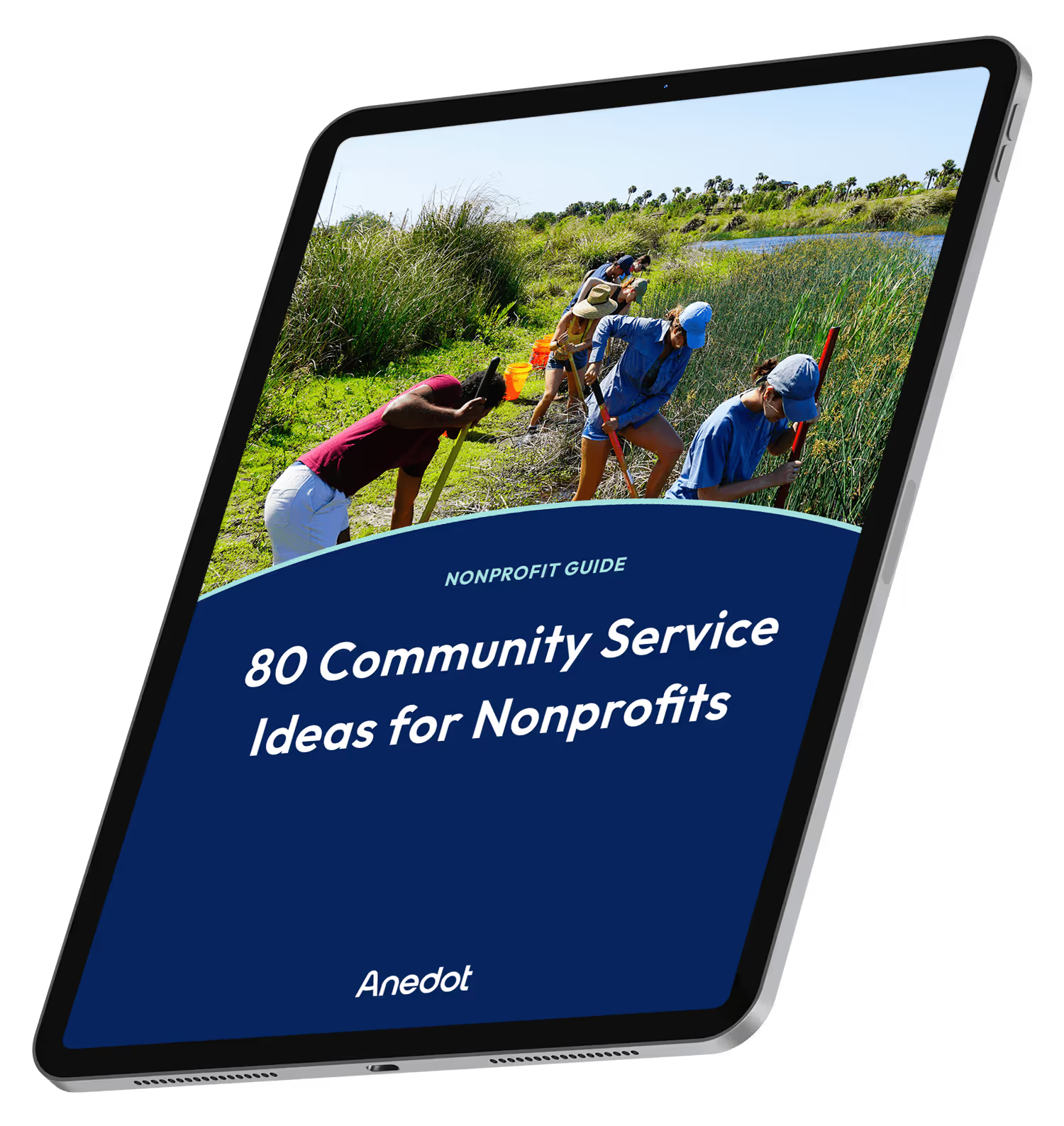
80 Community Service Ideas for Nonprofits

